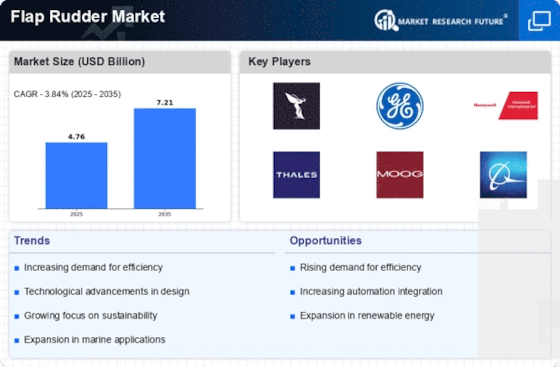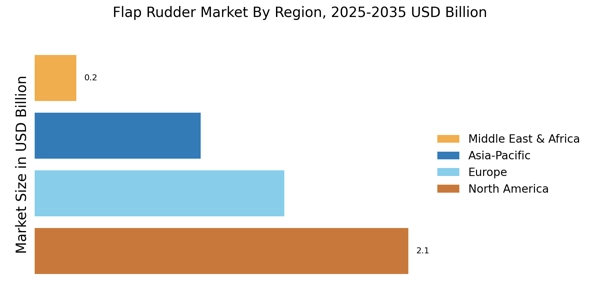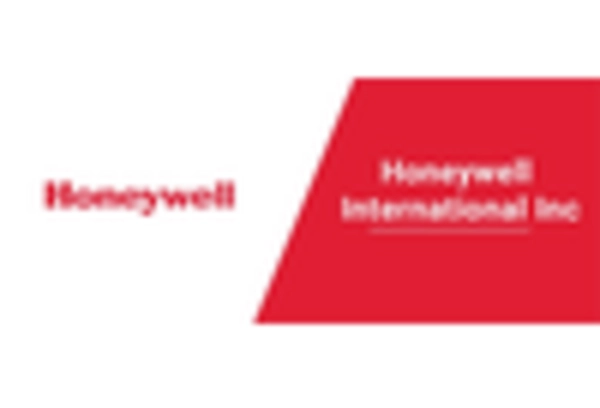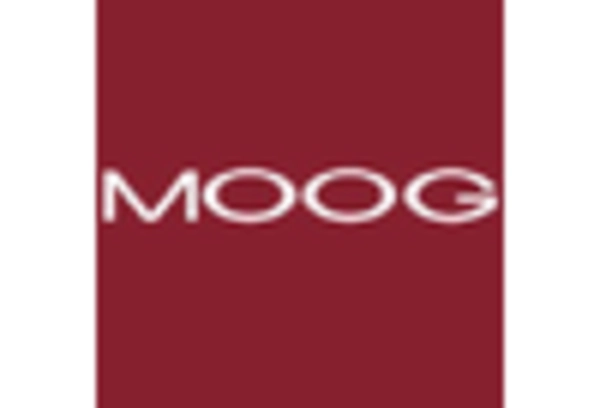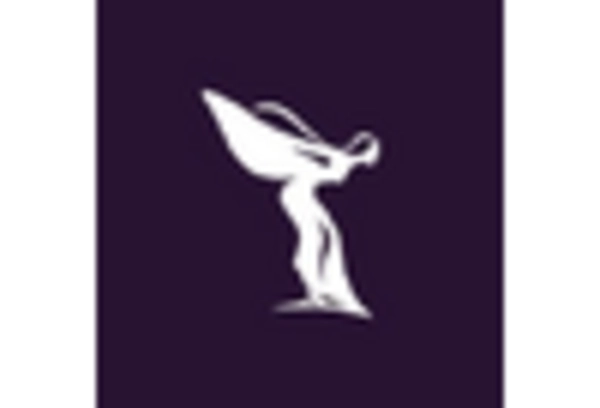Regulatory Compliance and Safety Standards
The flap rudder Market is significantly influenced by stringent regulatory compliance and safety standards imposed by maritime authorities. These regulations often mandate the adoption of advanced steering systems that enhance vessel safety and operational reliability. As safety becomes a paramount concern in maritime operations, the demand for flap rudders, which offer superior control and stability, is expected to rise. Furthermore, the International Maritime Organization has set forth guidelines that encourage the use of technologies that minimize environmental impact, indirectly promoting the adoption of flap rudder systems. This regulatory landscape is likely to drive investments in the Flap Rudder Market, as companies strive to meet compliance requirements while enhancing vessel performance.
Growth in Maritime Trade and Transportation
The Flap Rudder Market is benefiting from the growth in maritime trade and transportation, which is a direct result of increasing global trade activities. As shipping volumes rise, there is a corresponding need for more efficient and reliable vessels capable of handling larger cargo loads. Flap rudders, known for their ability to enhance maneuverability and reduce drag, are becoming a preferred choice among shipbuilders. Recent statistics indicate that the shipping industry is expected to expand at a rate of 3% annually, further driving the demand for advanced rudder systems. This growth trajectory suggests a robust future for the Flap Rudder Market, as companies invest in technologies that improve vessel performance and operational efficiency.
Focus on Fuel Efficiency and Emission Reduction
The Flap Rudder Market is increasingly influenced by the focus on fuel efficiency and emission reduction in maritime operations. As environmental concerns gain prominence, ship operators are seeking solutions that not only enhance performance but also minimize fuel consumption and emissions. Flap rudders, with their ability to optimize hydrodynamic performance, are seen as a viable solution to meet these objectives. The International Maritime Organization has set ambitious targets for reducing greenhouse gas emissions from shipping, which is likely to drive the adoption of more efficient rudder systems. This focus on sustainability is expected to create new opportunities within the Flap Rudder Market, as stakeholders prioritize technologies that align with environmental goals.
Increasing Demand for Efficient Maneuverability
The Flap Rudder Market is experiencing a notable surge in demand for enhanced maneuverability in marine vessels. This demand is driven by the need for improved operational efficiency and performance in various maritime applications. As vessels become larger and more complex, the requirement for advanced rudder systems, such as flap rudders, becomes increasingly critical. According to recent data, the market for marine propulsion systems is projected to grow at a compound annual growth rate of approximately 4.5% over the next five years. This growth is likely to bolster the Flap Rudder Market, as shipbuilders and operators seek to optimize vessel handling and reduce fuel consumption through innovative rudder technologies.
Technological Innovations in Marine Engineering
The Flap Rudder Market is poised for growth due to ongoing technological innovations in marine engineering. Advancements in materials science and design methodologies are leading to the development of more efficient and durable flap rudder systems. These innovations not only improve the performance of vessels but also contribute to reduced maintenance costs and extended service life. For instance, the integration of smart technologies and automation in rudder systems is becoming increasingly prevalent, allowing for real-time adjustments based on operational conditions. This trend is expected to attract investments in the Flap Rudder Market, as stakeholders seek to leverage cutting-edge technologies to enhance vessel performance and operational efficiency.


